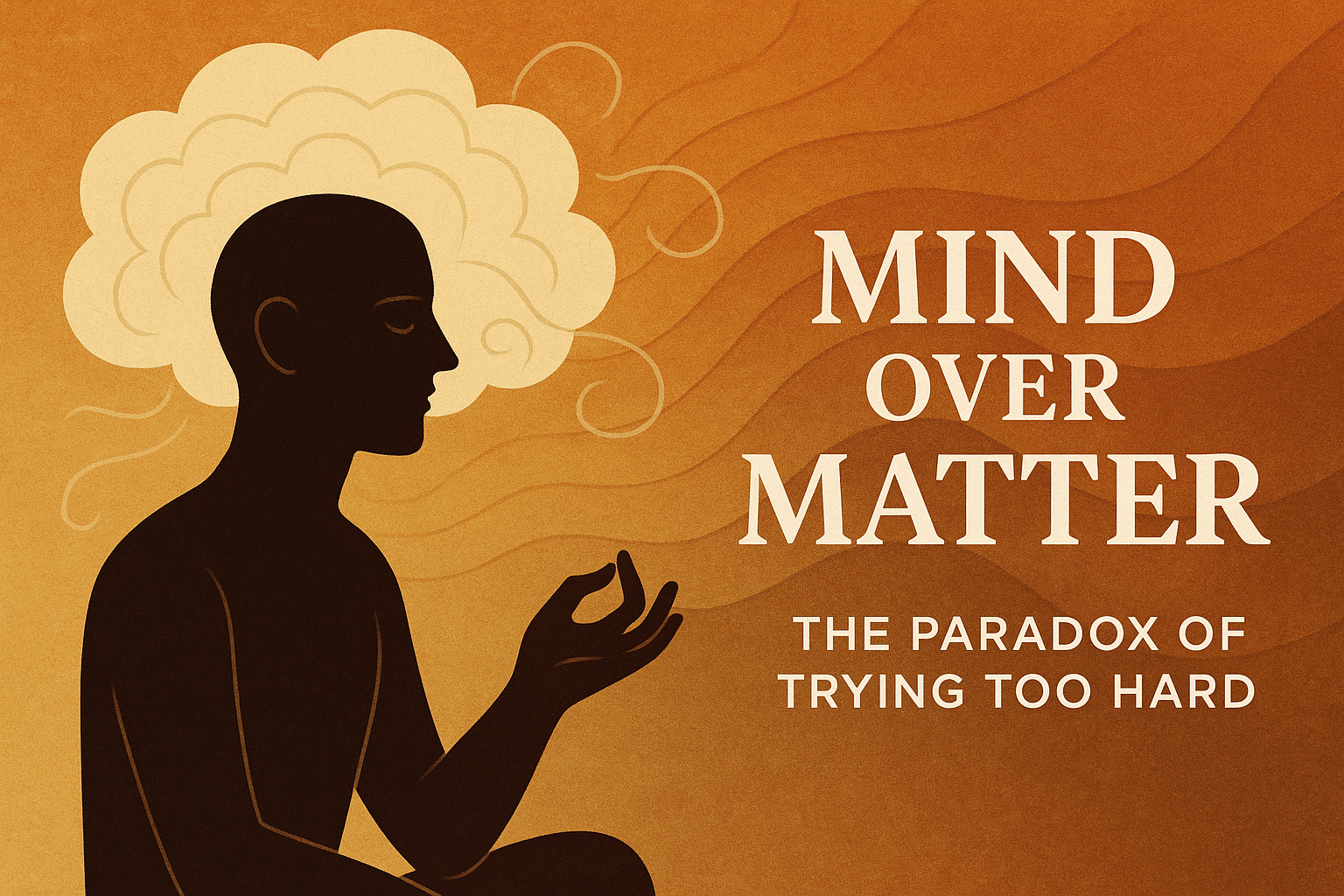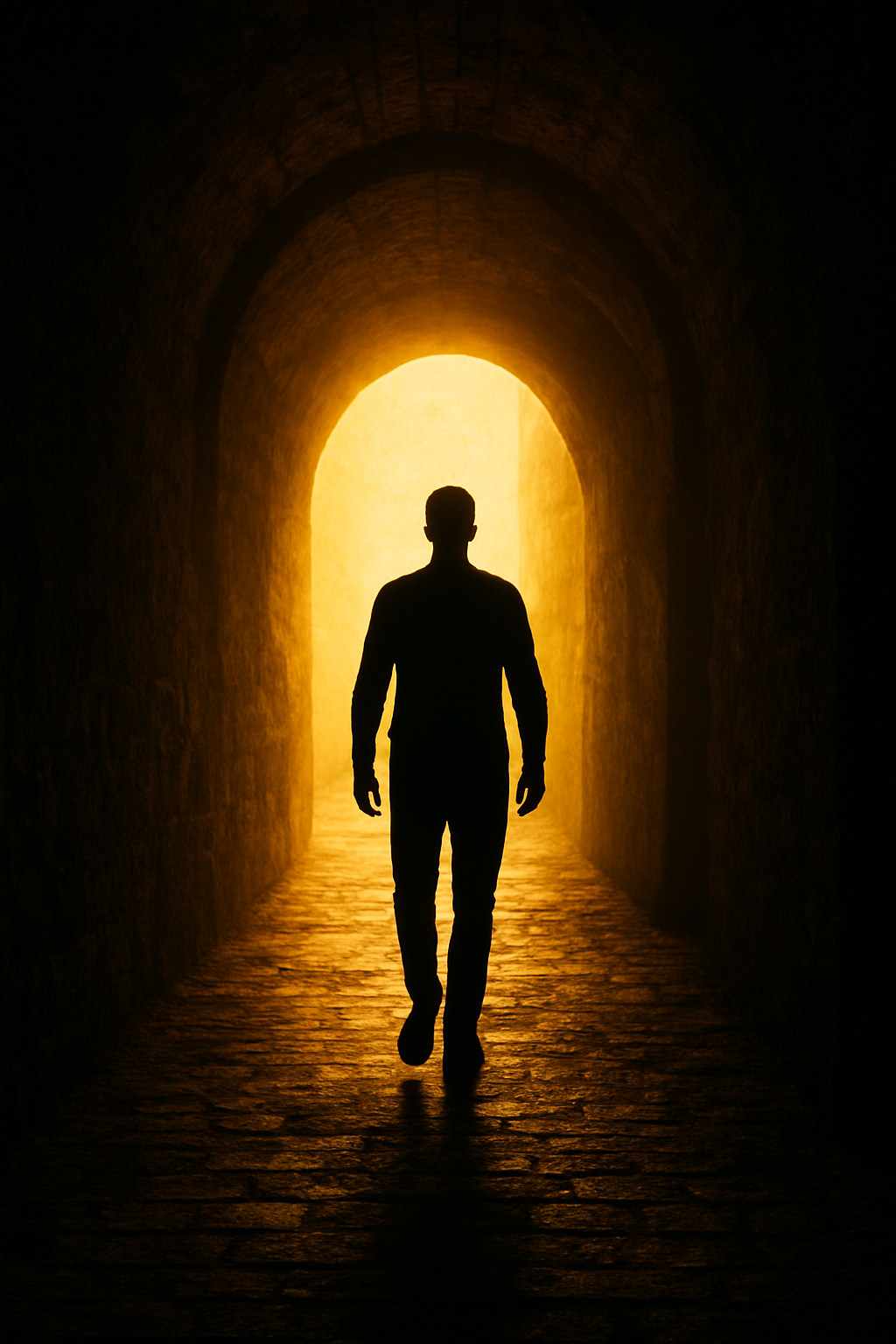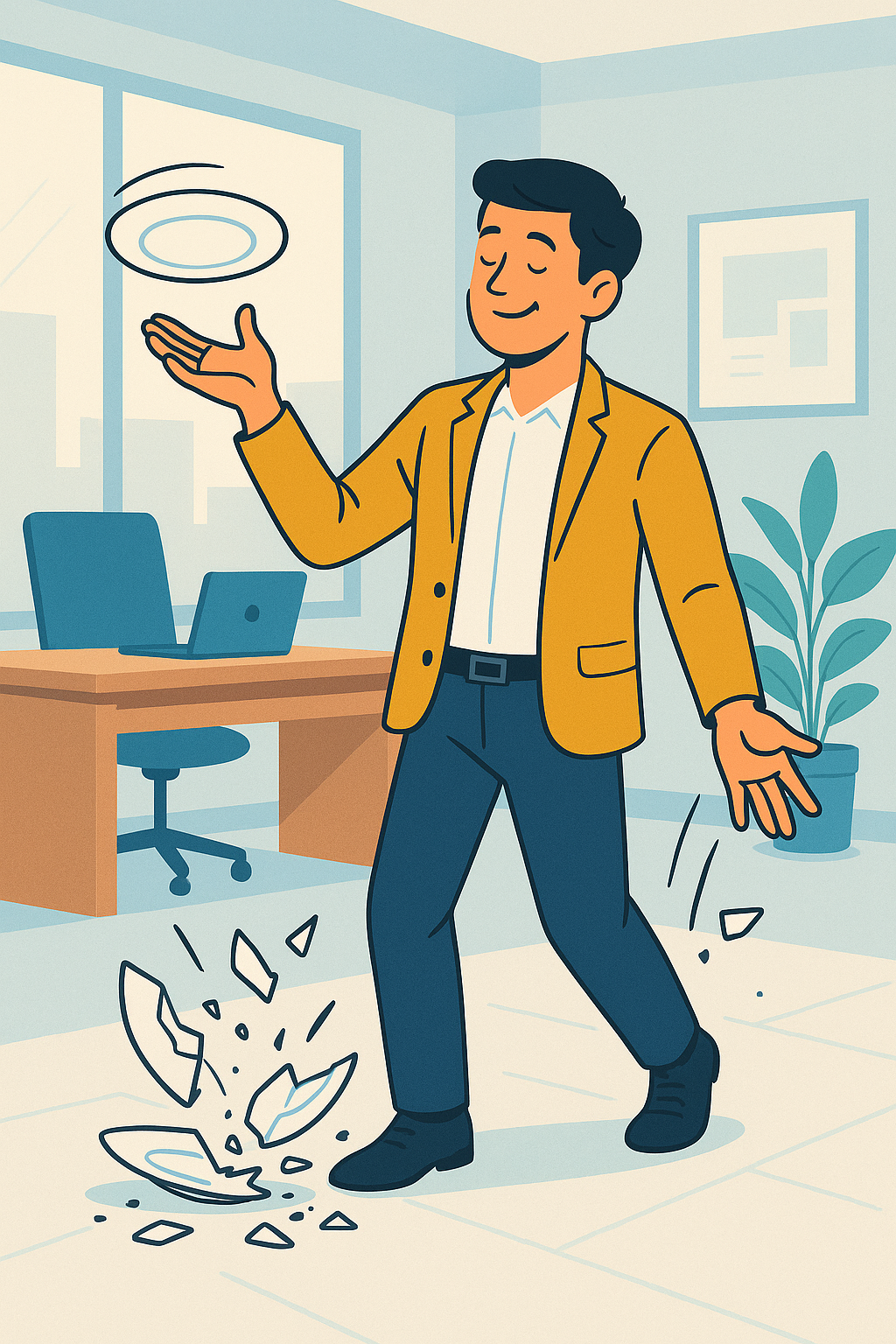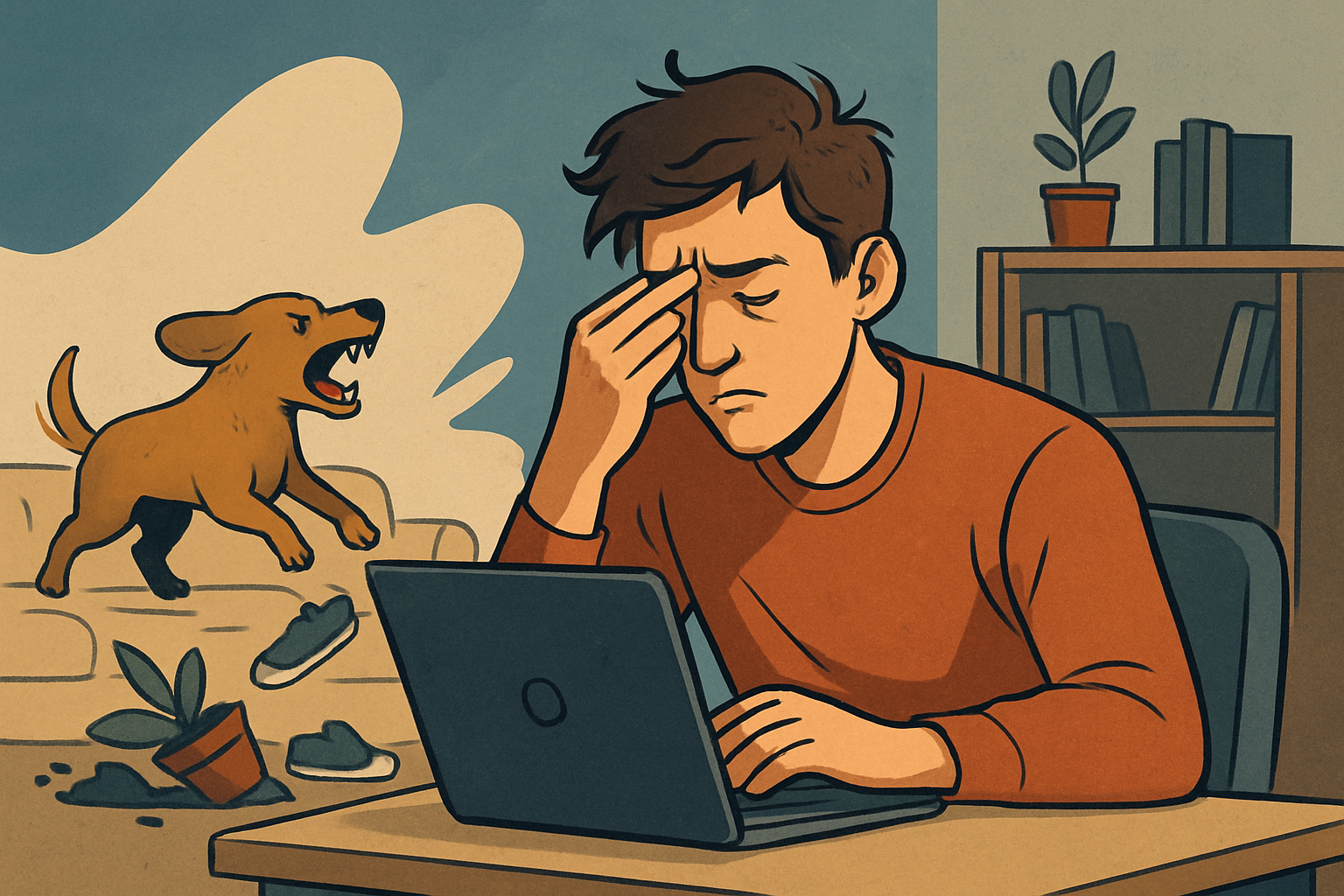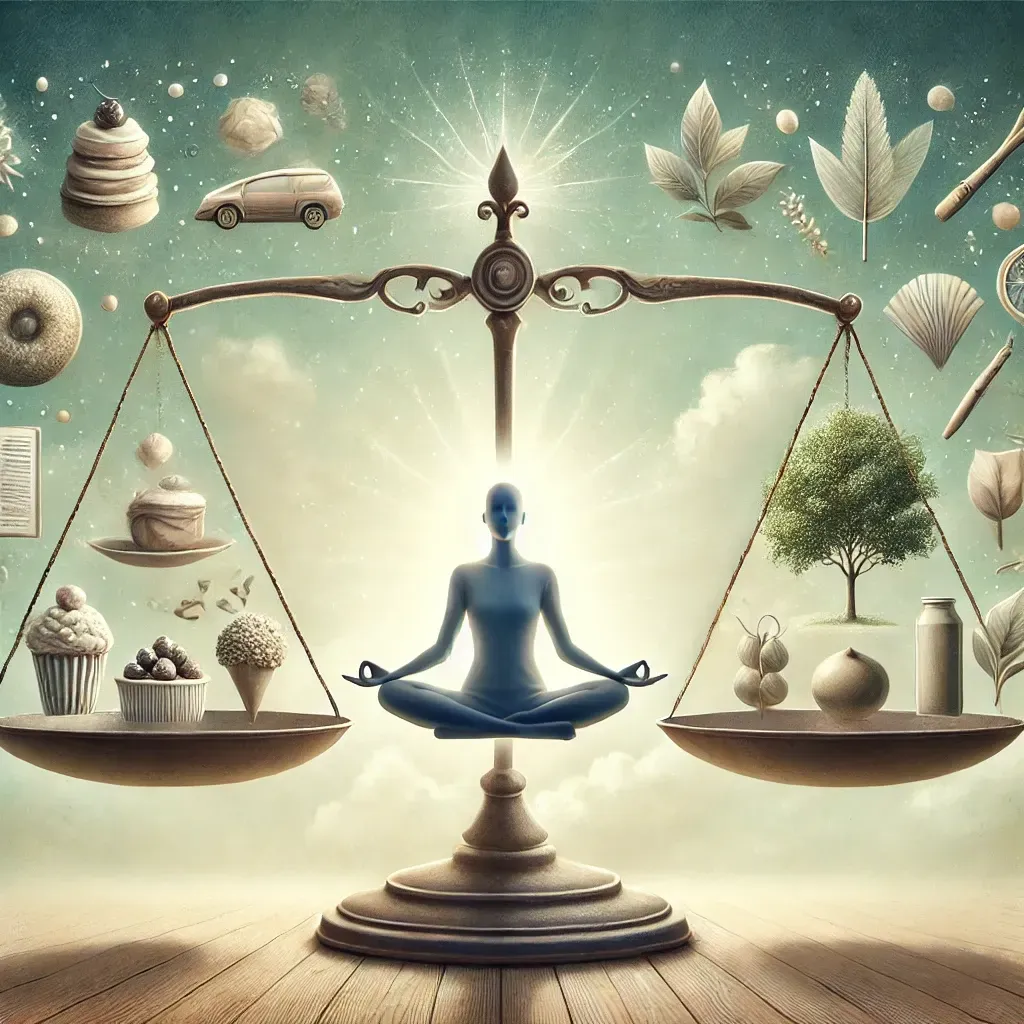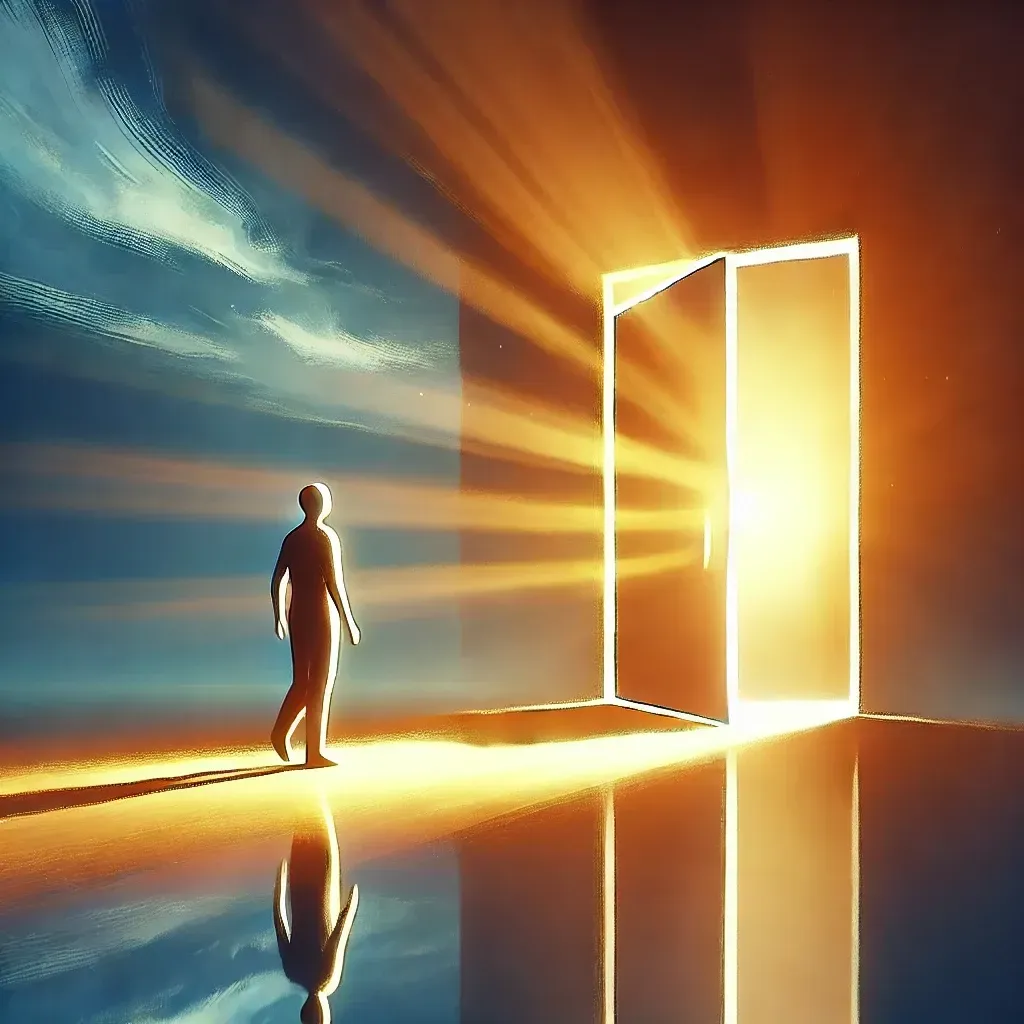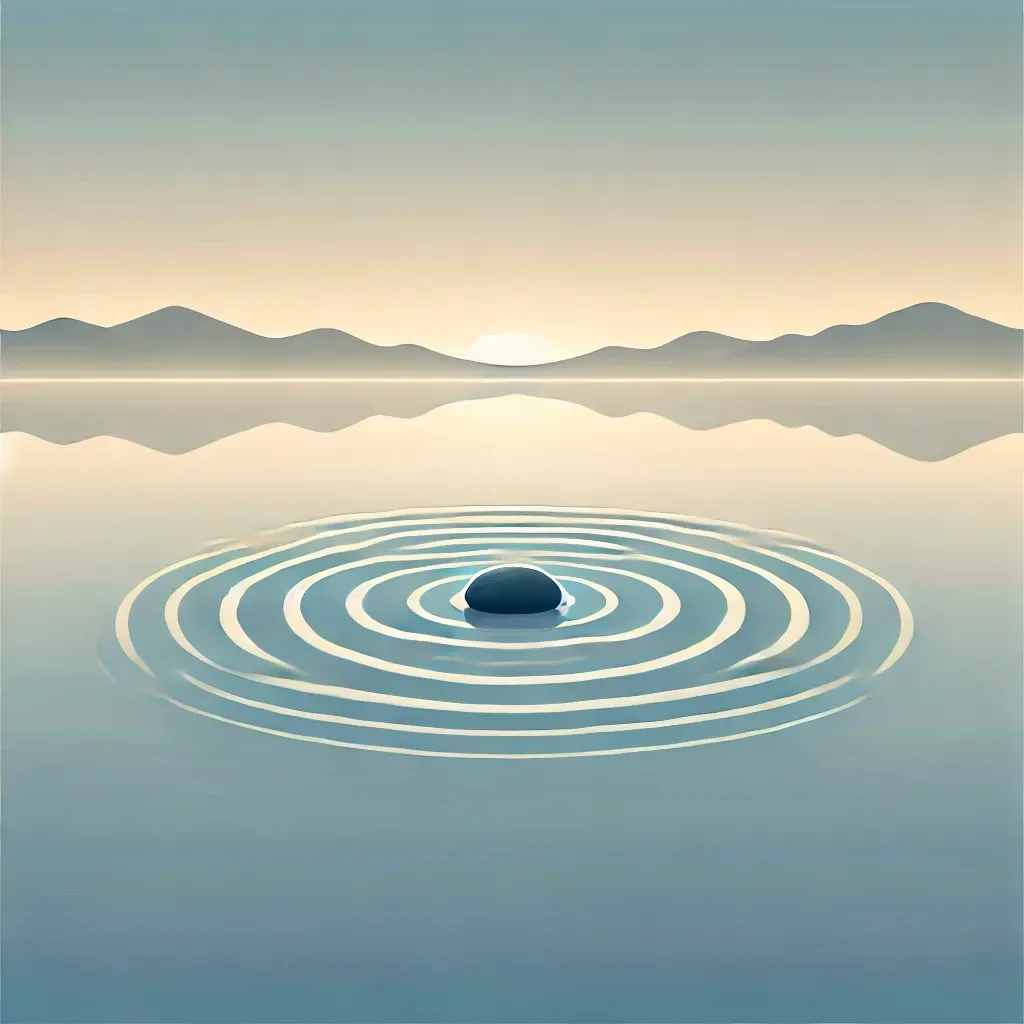🐝 Beyond the Buzz 🐝
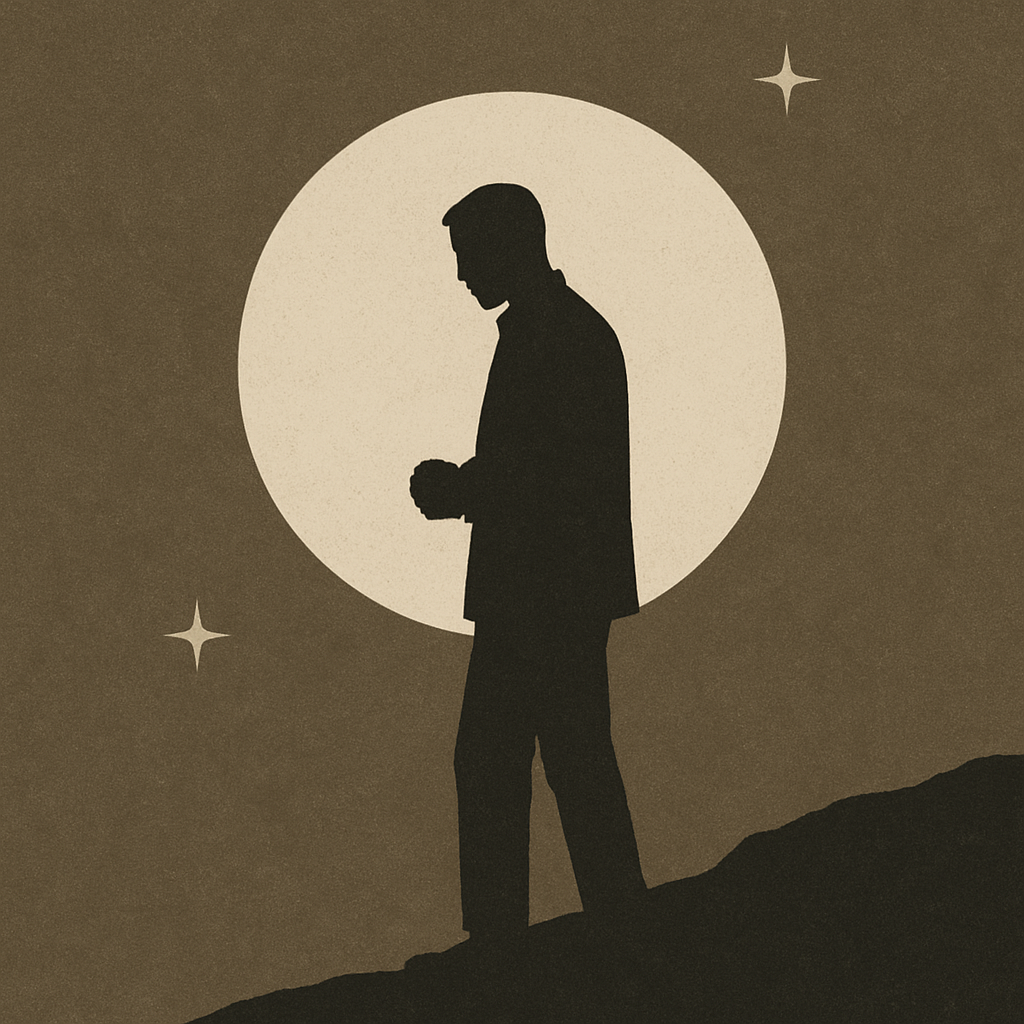
There are days when nothing makes sense. You try. You show up. You give your heart, your time, your attention. And still — nothing sticks. Nothing moves. Nothing reflects back what you hoped. Instead of momentum, you get static. Instead of appreciation, silence. You pour into things, into people, into ideas… and somehow feel more empty than full. And slowly, something inside you starts to break. It’s not dramatic. It’s quiet. A quiet cracking of belief. Belief that the world will reward your effort. Belief that kindness comes back around. Belief that if you keep doing the right thing, something will click. But sometimes, it doesn’t. And you’re left there — not with a revelation, but with a weight. A tiredness that no nap or quote or breathwork can fix. And here’s the truth: You’ve been giving everything away hoping someone would give something back. But now, there’s nothing left to give. And no one’s giving back. So maybe it’s time to stop. Not forever. Not dramatically. Just… for you. Stop waiting. Stop bleeding for things that don’t hold you in return. Stop trying to earn peace from a world that profits off your unrest. This isn’t giving up. This is self-rescue. You don’t need to be more useful, more available, more inspiring. You just need to be yours again. And that starts with something simple, but life-altering: “I see you. I won’t leave you again.” Because maybe the person you’ve been waiting to show up for you — was always going to be you. The one who stays. The one who protects your peace. The one who finally chooses you, without apology.

Sometimes shitty things happen. You find out you have a chronic illness, you lose a job, or someone you love passes away. These circumstances come for us all in some way or another throughout our lives. No one is immune to human suffering and disappointment, and everyone has, or will go through a traumatic experience which takes their breath away in the worst of ways. I personally do not have a recipe for success to get through these times or have some magic words I can say to others when they are going through it. There really isn’t anything you can do to help someone who is struggling after receiving terrible news. Maybe you can offer condolences, help with any errands they had on their list, or just sit with them, but in the end, the grief and intense emotion is sometimes so unbearable that nothing except their own processing will allow them to feel any sort of relief. So, for anyone out there who is having a hard time, I’d like to say that I’m sorry. I wish it were different for you, and I hope that you can find peace in whatever is going on and know that hopefully there is a meaning behind it all. You are strong, but it’s still ok to cry. You do what you need to do to get through this. Remember tomorrow isn’t promised so try to enjoy today. Laugh with your spouse, call your mom, and don’t be afraid to tell someone you love them. Bask in the joys of life when they happen and embrace each other when something goes wrong. Step into life with all it has to offer, from the exhilaration of falling in love to the grief of loss, it is why we are here. “9 months was too long to wait, but now we must wait a lifetime”

Balance isn’t just about staying upright—it’s about how you move through life. Think about riding a unicycle. At first, you have to focus on every little adjustment to keep from falling, but after a while, it just happens . You’re not thinking about every shift—you just move. The goal is simple: don’t fall. And to do that, you keep adjusting, naturally and automatically, just like breathing. That kind of balance is what keeps you moving forward in life. When you feel balanced, you don’t get thrown off so easily. Stress, setbacks, challenges—none of them hit as hard because you’re always making small, automatic corrections . You don’t freeze up or feel stuck. Instead of overthinking, you just act , keeping yourself in motion toward whatever’s next. Balance also changes how you show up in the world. When you feel steady, you’re more present with others. You’re not as reactive, not as easily pulled into fear or frustration. You listen more, you see more, and you handle things with a clearer mind. It makes you more yourself , not weighed down by stress or uncertainty. And honestly? Balance is what lets you grow . Picture a tightrope walker—every step could throw them off, but they don’t freeze or overanalyze. They move . And because they trust their ability to adjust, they push their limits. First, they walk the rope. Then, they raise it higher. Then, maybe they juggle while doing it. The point is, balance isn’t about standing still—it’s about learning to keep moving no matter where life takes you. So if you’re looking for stability, don’t aim for some perfect, unshakable place where nothing ever challenges you. That’s not how it works. Balance isn’t about never wobbling—it’s about knowing that when you do, you’ll find your center again. And the sooner you understand that, the sooner you’ll reach that next version of yourself.

What do you do when it seems like there’s nothing you can do to fix a situation? Or how do you feel when everything you’ve tried to reach your goals hasn’t worked and it seems like you’re out of options? Do you buckle down and work harder? Do you give up? When you don’t see progress and can’t seem to muster up any more energy to “push through” the best thing you can do is find “ your safe place ”. To some this is going for a run or working out, for others it may be reading or journaling. Whatever it is, it’s the place you go (in your head) or thing you do (to get out of your head) when life has been kicking you around too much for any given day, month or year. It’s the place you know you can be yourself and everything is fine. Where nothing can touch you and you can detach for a little even. Where all the noise of the world fades away for just a little bit. This place is special, you know it as much as it knows you and it never seems to judge you or criticize you. It may not be a place filled with all your hopes and dreams, but it is your safe place , a place that feels like home in this foreign world. Everyone has and everyone needs a safe space, they can just look wildly different, like either diving into a project or work, or laying in bed scrolling social media. It doesn’t matter what it is, what is important is that it gives you reprieve from the constant mental chatter and drama of life. This safe place is what you’ve probably relied on in difficult times to weather the lows of life. It has been a friend when you just couldn’t seem to keep doing what you’ve been doing, and like a friend… who we hang out with can tell us a lot about ourselves. After all our safe place is usually one of, if not the only place we can feel comfortable with ourselves. So, what makes you want to hang out with you? Is it the freedom to peer into your feelings? Is it the freedom to not be productive? Or maybe you just like taking baths for some reason… The thing you do or place you go is often indicative in some way of what you value and how you want to feel. No matter what you do or how you access your safe space it has proven to be reliable and inviting even. It never turns you away and you always receive relief when you go. This place is special and it’s safe and you must be the one to protect it and you will, because it’s your lifeline in this chaotic world and you need it. So I challenge you, the reader here, to figure out what your safe spaces are, the things you wouldn’t let anyone take away. The things you need when nothing else is going right, and ask yourself why these things or actions bring you to that place of contentment . They may have a story to tell.

How do you balance your spending? Do you have a budget down to the T, tracking every cent? Do you trust yourself not to overspend and just put everything on a credit card? Or do you let your spouse handle it all? Either way, your past decisions depict an accurate picture of where you are today. In the past, I used a bucket system. My paycheck went into up to 6 different accounts, and I would only spend what was in each account for that period. It worked very well when we had big, fixed expenses on the horizon that we needed to plan for, and it set us up for this new phase of life. However, times change, and so do you. My wife and I have always been into saving and investing as much as we could. I’d be easily convinced to send money straight to investment accounts, leaving only the essentials for bills and known expenses in our checking and savings. We paid off our credit cards in full every month—just barely—because the rest of our money was already deployed. We had a rough idea of what we could spend while still covering our cards each month. The budget was loose, but it worked. We invested as much as possible and kept up with our expenses. Recently, my wife and I transitioned to a similar approach, but more passive, so we can focus on life rather than finances. Instead of directing investment money to separate accounts, we now put everything into just two: one for saving and one for monthly expenses. The rest is set up through our employers to go straight to our retirement plans, which we had done before, but not to this extent. In the past, I focused heavily on taxable accounts because it was lucrative to be able to invest in anything I wanted—from Pokemon cards and Bitcoin to the occasional gold coin. Now, my wife and I feel we have enough in those taxable (non-retirement) investments that we wouldn’t need to touch our retirement accounts in 99% of emergencies. This is fluid and might change in the future, but for now, we’re set—even in worst-case scenarios. By focusing on after-tax brokerage accounts and alternative investments, we’ve reached a point where we can now focus solely on retirement accounts, which has taken a huge load off our shoulders. People in investing groups often recommend a standard flow: first, a 6-month emergency fund; then your employer 401(k) match; then max out a Roth IRA (or backdoor Roth); then fully contribute to your 401(k); maybe use permanent life insurance for tax benefits; and only after all that, open a brokerage account or consider crypto. That model always left me uneasy—like it was backwards—despite the obvious tax efficiency. I used to think, “What do you do if you have kids and need more than your emergency fund, or if you want to retire at 55?” Retirement accounts typically can’t be touched until later without penalties, so how would you access that money if it was your goal? That’s why, in combination with retirement accounts, I prioritized taxable accounts in my 20s and early 30s—so if I needed money before retirement, it was there, yet I was still contributing to more tax-efficient vehicles. Now, having that buffer layer means I’m much more comfortable throwing everything we can into retirement accounts and deprioritizing taxable ones. This “SUPER” emergency fund makes me feel more at ease than if I had only 6 to 12 months of cash outside my retirement accounts. So, what I’m saying is: always save and invest in a way that fits your needs—not just some blueprint you found in a subreddit—because everyone has different goals in life. I, for one, wanted an extra layer of security so I’d feel comfortable locking up my hard-earned money for 40+ years. While this isn’t the right way for everyone, it was right for me because I knew what would allow me to maximize my contributions and maintain my peace of mind. Recognize that your needs change throughout life, and adjust. One day you might slow down on investing to save for a big vacation; another time, you might boost retirement contributions because you realize you’re behind and need to cut out frivolous expenses. The point is to adapt as needed and know yourself well enough to step outside the mold if you have to—because in the end, it’s not all about money, it’s about living. Plan for the future, but don’t ignore your feelings and needs. Find what works for you, and you’ll get more joy and comfort than if you followed a stale plan that doesn’t make sense to you. The cards will land as they will, and you’ll look back and realize you either did well or made a mistake. But remember, those were your choices. Right now, you have the power to change the trajectory of your future. Adjust as needed, and lean on advisors if you need help.

Have you ever wondered what the best use of your time is? Or have you ever stopped and thought, maybe I could be using my time better? This thought has been creeping up on me a bit recently. A weekend plan of mine just got cancelled and so I thought to myself, what would be a good use of my time? Should I work on some self-development to uplevel my career, should I read one of my new books, or should I sit on the couch and scroll reddit? I was hit with the dilemma of using my time for productivity or using it for enjoyment, and it almost set me off in a spiral where I couldn’t make a choice. I was going to end up doing something, but didn’t know what. It almost seemed like if today I didn’t do something productive, I would fall behind in life, it was very black and white thinking which is something I tend to do, all or nothing. If I don’t make the perfect choice right now, then my life will be ruined. After I had settled in a little, had my morning cup of coffee and some food, my brain started to relax a bit, and I was able to break out of the negative loop of being unable to make a decision. I decided to keep the day open and see how it would flow, and now here I am writing about this common experience that seems to happen almost constantly. I am realizing how important routine can be. Routine can be such a grounding experience that it allows you to step out of routine, if that makes sense. By having a morning routine, which is maybe getting a cup of coffee and some food for some, it allows you to settle into the day and be open to whatever may come. Without that grounding experience you might find yourself scrambling to get momentum in the day and end up doing nothing, or something that isn’t important to you because you didn’t take the time to get rolling. This brings me back to what I was saying earlier. How do you make the right choices for your time? The first step is to get positive momentum in your day. This can either be through your normal morning routine, by meditating and resetting your thoughts after a negative experience or even doing one of your favorite things. Once you are feeling at ease or even light and happy, you can then make clear decisions on how you’d like to spend your time. If you make the decision from this mindset the decision you make is almost always going to be a positive experience and something you enjoy. So, in the end it doesn’t matter if you do something productive, or something fun, as long as you make the decision from a state of ease, the chances of it being a good use of your time, due to the enjoyment it provides, it is the right decision. So next time you’re worried about if you’re doing the right thing for this moment or if your making weekend plans on a Tuesday, make sure you’re in a clear state of mind and you are being influenced by joy and ease rather than worry and anxiety.

Recently, I noticed something sneaky creeping up on me. You don’t feel it in the moment, but you can see the results afterward. It’s not a serial killer or some movie villain—it’s lifestyle creep. It’s that subtle, almost unnoticeable shift where you start spending more and more in the pursuit of feeling like you’re “moving up” in the world, even if it’s not in the most important ways. Over the past six months, my wife and I have slowly given in to this. Our income hasn’t changed, yet we’re spending more, simply because we’ve allowed ourselves to enjoy life’s pleasures a bit more. We’re still breaking even or barely saving anything beyond our essentials—nothing like the higher percentage of income I used to invest over the past five years. But at the same time, it’s been fun. I finally feel like I’m starting to spend some of the money I’ve worked hard to earn. A few years ago, most of my peers were already spending liberally on new cars, hobby equipment, and regular nights out. Meanwhile, I couldn’t bring myself to buy more than one pair of pants per year. I would much rather funnel every leftover dollar into investments that grew in value or produced cash flow. I rarely wanted to divert funds to something I considered “frivolous.” That changed after I read a book called The Illusion of Money. It made a key point that stuck with me: it’s okay to spend money on things that bring you enjoyment. After that, I no longer felt guilty about spending $10 on a bucket of golf balls at the driving range (and my swing has improved). I felt more confident booking a hotel room for a weekend getaway with my wife, and I could finally justify going out on a Friday night to our favorite spot—even if it was just for a quick drink and some pickles. So yes, I did a bit of a 180. I’ve gone from saving every penny to actively enjoying spending my money. And you know what? It’s led to some incredible memories. I’ve been exploring more, tasting new foods, trying out new activities—from spontaneous trips and a new boxing gym membership to bringing home a new puppy. It feels great to be more connected to the world around me. All that said, lifestyle creep comes at a cost. Even though our income hasn’t changed, my wife and I are spending a lot more than we used to. Yet in return, we’ve made memories that, to me, seem priceless. It’s reminded me that spending money is not inherently bad; in fact, it can be a source of joy and fulfillment if done thoughtfully. Now I realize: it’s crucial to spend money on things that truly add value to your life. Of course, everything in moderation. We have to be honest with ourselves about the real benefits of each purchase. Take, for example, my debate over getting an Xbox. On one hand, it would be fun to play with friends, reconnect with people I don’t see often, and have a quick mental break. But considering my busy schedule, I’m not sure I’d use it often enough to justify the cost—especially when the same amount of money could pay for several months of boxing lessons, which I already love and which keeps me active. Sure, some people might say an Xbox is a one-time purchase you can enjoy indefinitely, but they might forget about the ongoing cost of new games. Meanwhile, boxing offers me a physical workout, a chance to meet new people, and plenty of motivation—all of which, for me, is more beneficial than occasional gaming sessions. Ultimately, what I’m learning is this: lifestyle creep might happen, but if it does, make sure you’re spending on things that genuinely enhance your life. Weigh the costs and benefits and be honest about whether a purchase will bring long-term happiness or just a fleeting thrill. It doesn’t matter if it’s video games or a gym membership—just ensure it’s something you truly love and that truly adds value to your life.

I often get so caught up in the how: how to accomplish something, how to reach my goals, how to get what I want. This obsession has sometimes led me down paths that weren’t right for me. For example, in college, I chose to major in engineering because I believed it was the best way to make good money straight out of school with only a four-year degree. My ultimate goal was to be financially stable, and engineering seemed like a reliable way to achieve that. I’d heard about people landing solid jobs after graduating with a mechanical engineering degree. It was considered a stable field; you got paid what you were worth, and you could afford some of life’s pleasures—maybe a trip to Europe, a nice home, supporting your kids through college, and comfortably setting yourself up for retirement. The end result sounded great. But the journey to get there was full of confusion. I rarely understood what was going on in class, my test scores weren’t great, and the concepts didn’t click for me. I realized, despite believing I was “mathy,” my true desire to learn lay elsewhere. It took almost four years before I finally switched to a business major, and that opened my eyes. Once I made the change, I felt more engaged and motivated. I ended up graduating with degrees in finance and marketing after a couple of extra years. From this experience, I learned that if you actually like something, you have a much better chance of being good at it. Your natural interests bring an innate drive to learn—far more than you’d ever muster doing something that doesn’t come naturally or that you don’t enjoy. In my pursuit of money, I got hung up on how to get there, rather than staying open to different paths and focusing on why I wanted it. The why is more complex. I wanted money and a stable financial future for a wife and kids someday, because I wanted them to feel secure. I had a secure childhood and wanted to pass that feeling on to my own family. I also admired my parents’ example: they gave me a good life, and I wanted to do the same for the people I loved. The funny thing is, my dad actually followed what he wanted to do from the start. He loved to draw, so he began college in art school. When a teacher graded one of his projects a C (even though my dad and many others felt it was excellent), he became disillusioned. He felt art was subjective and couldn’t be fairly graded. Eventually, he decided to pursue another dream—being a doctor who works with kids. He loved kids and wasn’t motivated purely by money. My parents often talk about the high interest rates on his loans back then, rates that would seem insane today. But he still went for it. I’m not sure why it took me so long to notice that my dad’s path was a perfect example: he chased his dream, and the how worked itself out over time. Now, I want my life to be the same. I want to write, and I want to earn enough money so I don’t have to worry about bills, to maybe travel to Europe, and to have a comfortable retirement. I want my kids and grandkids to have the same security I had growing up, so they can explore their own passions and find what truly motivates them. So I offer you, the reader, a chance to reflect on your own life. Is what you’re doing now what you really want to be doing? Does it naturally motivate you, keep you engaged, and excite you enough that you might do it in your free time? If not, that’s okay—nobody is constantly doing something they love every second of the day. Still, I challenge you to dive into something that genuinely interests you, something that lets you express yourself and impact others in a meaningful way. You never know: by starting with your why, the how might just fall into place. Why do I want to write about these topics in my blog? Because it relaxes me. It helps me envision a future where I can earn a living this way, and it gives me hope that maybe someone out there is reading these posts and finding a bit of guidance. Maybe they’re struggling to find their place, and my stories could help. But if I’m honest, I’m doing it first and foremost for myself—as an outlet, a way to process my feelings and find resolution. And that’s enough for me right now. Hopefully, it leads me to how I’ll reach my bigger goals. For now, just writing is enough.

I’ve recently noticed a pattern in my approach to personal projects: I tend to rush through them—even the ones I genuinely enjoy, like building with Legos or painting. My focus on “finishing” overshadows the actual process. Large-scale projects that must be done in pieces over time can feel overwhelming. Instead of appreciating the incremental progress, I get hung up on the fact that I'm not done yet. One clear example is my experience writing a book. I have my chapter outlines and main ideas sketched out, and I’ve started writing and editing. Yet every time I write, I want to complete entire sections in one go. When I don’t, I walk away feeling off, wishing I could have finished it already. My urge to see results quickly often makes me think I won’t have enough time left for other things. The same restlessness appears when I read books: I’ll tear through three or four chapters, lose interest, and start a new book. So I end up rotating through five or ten books at once, hardly ever finishing one before bouncing to the next. It’s not that I don’t like these books—it’s just that once I grasp the main idea, I convince myself I know how the rest will go. That’s why blogging has been such a great outlet for me. Each post allows a short, self-contained burst of creativity. In just a few paragraphs, I can capture a single idea or emotion and feel complete in that moment. It’s the ideal length for my attention span and how I process thoughts. Sometimes, though, I worry this pattern means I lack the determination to finish bigger, more ambitious projects. Will I ever be more than a short-story writer or blogger? Will I ever produce something truly substantial? But I’ve found a silver lining. Because I’m so motivated to blog, I’m building a habit of writing consistently—much more than I would if I forced myself to work exclusively on a lengthy book. Each blog post might be small, but it still contributes to a greater body of work. That’s real progress. Sometimes, tiny steps add up to something big in the long run. Another realization has emerged for me: we don’t always need 150 pages to convey a single idea. Poems, for instance, often capture profound truths in just a few lines. We set arbitrary rules about how “long” a project should be or how we “should” approach it. But if you’re doing something you love—writing, painting, building—it should first bring joy to you. If you’re forcing yourself to fit inside someone else’s box, your work will come across as forced or insincere. So here’s my advice for you (and a reminder to myself): let your energy flow naturally. If it takes you a few minutes to express what’s on your heart, that’s enough. If it takes a few years, that’s enough, too. Don’t confine yourself to rigid expectations. Focus on doing work that genuinely makes you happy, and trust that the authenticity will shine through. Over time, consistent effort—no matter how small—can lead to something meaningful. And sometimes, the journey itself can be far more important than simply crossing the finish line.

In today’s world, we’re often so busy with work, friends, and hobbies that we rarely find a few moments of silence to take a deep breath and simply let go. Instead, we get swept up in responsibilities and plans, believing they’ll improve our lives—or at least maintain the life we’re used to. As a result, we push ourselves to a point of exhaustion. Then, even when we finally have a moment to pause, we find it nearly impossible to relax because we’ve grown so accustomed to being on the go. This cycle catches up with everyone, so today, I want to remind you to prioritize your well-being—yes, that might mean stepping back from what you’re doing, and perhaps only reading half of this blog once you grasp what you should do next. What Does It Mean to “Step Back”? Taking a step back means letting go of worries, future plans, to-do lists, and the idea that everything must get done right this second. It’s about taking a deep breath and allowing your body to loosen from the tension you’ve been carrying. As you inhale and exhale, notice any anxious thoughts that pop up, then simply observe them before letting them pass. This is a time to appreciate the simple peace of the present moment. Why Rest Matters Giving yourself even a brief moment of silence and rest can transform the rest of your day. You’ll lower cortisol levels, think more clearly, and experience a better attitude overall if you take these rejuvenating pauses a few times daily. Without them, you might rush through life, convinced that you’ll only feel good once you reach some never-ending destination. Instead, try inviting ease into each day. When you approach life with a greater sense of calm, it becomes more enjoyable. Certainly, there are times when it’s wise to plan ahead and power through your to-do list, but you don’t need to live in constant overdrive. Replacing Stress with Healthy Relaxation Many people who don’t know how to relax end up relying on substances or external distractions to detach from their thoughts. By learning to give yourself a moment of rest, you won’t need these substitutes as much. Life becomes more enjoyable when you accept that a sense of ease can be found in almost any situation, so long as you approach it like a mini-meditation. For instance, the next time you find yourself waiting in a line, notice if impatience starts creeping in. Ask how you can make this moment more pleasant. Perhaps this is your chance to take a deep breath, release the day’s tension, and recognize there’s nothing else you can do right now—so you may as well relax for a second. It might sound easier said than done, but there’s always an opportunity to let go of worries about the future if you choose to see it. A Gentle Reminder to Pause As you read these words, let them wash over you like a calming bedtime story from childhood. Allow the world around you to pause, and take another deep breath. Remind yourself that everything is going to be okay—you don’t have to do anything in particular right this moment. If a thought pops up, picture it drifting away like a cloud. Remember, only you can give yourself the time you need to reset from the constant hustle of daily life. Love yourself enough to recognize when you need a break, and understand that any pushing or striving right now might not help you get where you truly want to go. Save your energy for when you feel refreshed and motivated. Trust that this energy will return—and it will be far more productive if you allow yourself the rest you need first.

There’s a difference between simply going along with life and truly embracing it. One approach involves moving through the world without really thinking—just doing things automatically and ignoring how outrageously bonkers life can be. The other approach acknowledges life’s absurdity, chooses to be fully present, and decides to leap right in rather than tiptoe around like it’s a frozen pond. I’ll let you decide which is which. Life really is absurd if you think about it. We’re born from a mother and father, and before that…who knows? Then we start living on this planet, which spins around a massive ball of fire, yet somehow there’s life, climates, languages, and so on. It’s almost like we’re part of an incredibly complex, orchestrated reality. How did this all come to be? And what does it mean to be alive, besides the inevitability of death and taxes? It’s funny—my manager made a joke this week about how I was experiencing existential dread just because I had an odd stomach pain. Maybe she was onto something, but at the time, all I knew was that my tummy hurt and I wanted to lie in bed. It was probably just a bout of IBS, but I digress. Being on this earth is wild, and if you haven’t thought so, you’ve probably never faced existential dread. I’d describe that feeling as a kind of confusion, like being on autopilot because you can’t find your place in this vast universe. It sometimes brings fear, anxiety, or even reckless behavior…and occasionally a stomachache. So what does this mean for us? That sense of ‘dread’ might be the door you need to walk through to escape whatever’s going on. But does that mean accepting death? Or does it mean something else? Maybe it’s closer to thinking, “Hey, I’m here, and it’s crazy that I’m here. Shouldn’t I do what I want? Why am I tiptoeing around life, fearing something that probably isn’t worse than death? And even if it were, who knows what happens after?” What I’m getting at is that because life is so absurd, it’s ridiculous to let fear run your life. If you want a more traditional, secure life, that’s perfectly fine—you can still step into life and embrace it. Embracing life doesn’t mean doing something illegal or reckless. It’s bigger than that. Embracing life means confronting the fear that holds you back from doing what’s right for you, whatever the consequences. It’s about chipping away at a dream because you trust that someday it’ll turn into something real, and that the journey will be worth it. When you embrace life, the journey becomes the destination. You aren’t just living to survive or meet basic needs (which can include extravagant vacations, love, or a big house). Instead, you step into the unknown of an experience life has brought to your crossroads. Do you pick the familiar path, or do you take a leap because your heart tells you it’s right? Are you going through the motions, or are you expanding—letting yourself feel the full spectrum of emotions, from dread to joy to disappointment? When you decide to stop tiptoeing and truly embrace life , you allow yourself to be fully alive in all its absurdity—and that, in itself, is transformative.

There are some experiences in life that simply can’t be put into words. You have to live them to truly understand. Still, I’d like to share my perspective on “presence.” Presence often begins by slowing down the chatter in your mind. You might not even realize it’s there until it stops—the constant worry, strategizing, and self-talk. As you learn to let these thoughts go, even briefly, you begin to stumble upon presence. Once you catch a glimpse of this state, returning to the old mental noise just doesn’t seem worth it anymore. Thinking no longer rivals being fully here in the now. You might wobble back and forth at first—sometimes lost in thought, other times anchored in presence. But even a fleeting moment of presence can leave a lasting impression. In those moments, you feel genuinely good. It can seem as if your body is absorbing energy, yet it’s also easy to forget you even have a body. Sometimes this can feel unsettling, which may pull you back into thought, but that’s perfectly okay. What matters is that you tasted the experience. As you grow in presence, you learn how to navigate it—how to bring that peaceful state into everyday life more and more. You discover that letting go of incessant mental chatter opens up a new reality: a more forgiving world where you’re not perpetually on guard or consumed by what comes next. Ultimately, presence offers a sense of freedom and grounding that words can only hint at. The best way to understand it, though, is to experience it for yourself.
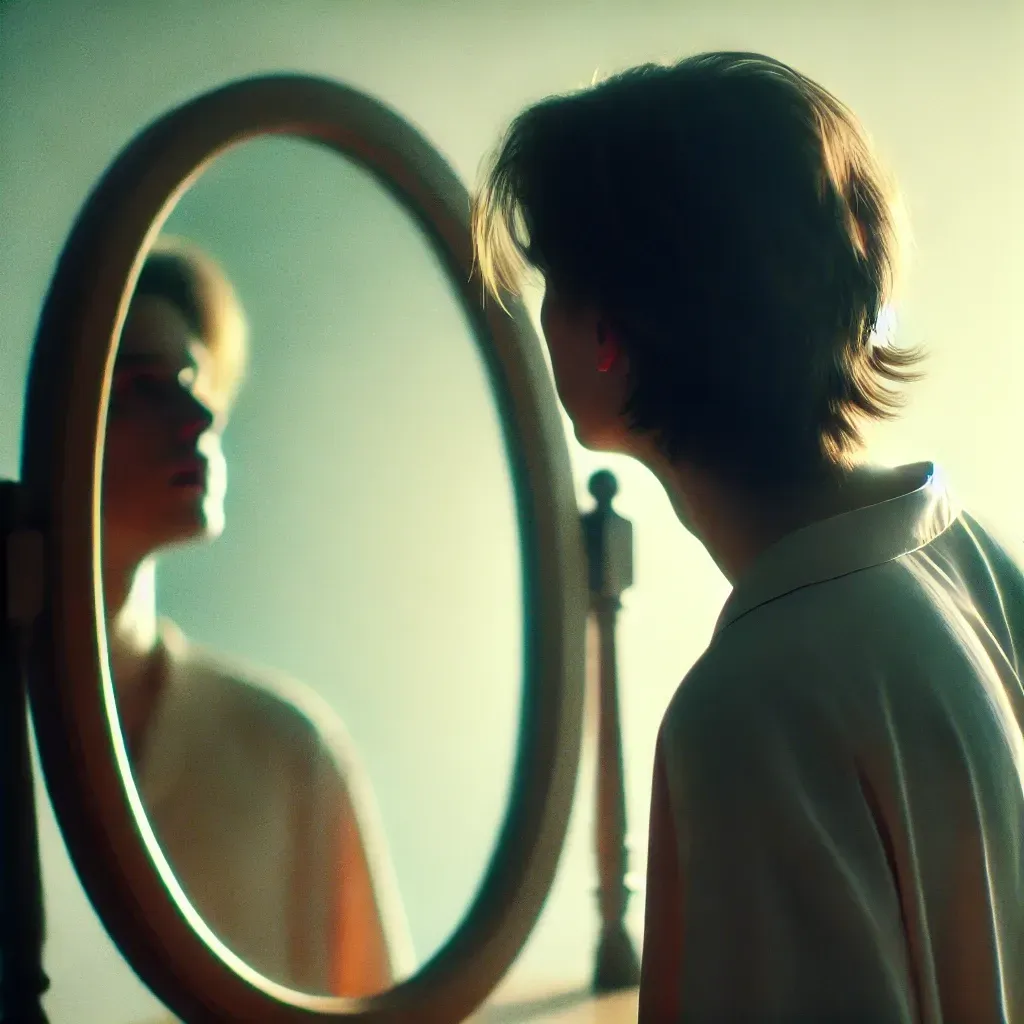
I gazed at my reflection, Searching for who I might become— A thousand roads before me, And I chose to follow some. In that chasing of illusions, I almost lost my way, Wishing for a different face To greet me every day. Yet in the quiet hours, A gentle truth appeared: All I ever needed Was already here. “To wish I was other, if only it could be. Oh no! Now, I am fine with being me.” Those words lit a spark within me, A flame I never knew, They whispered I am enough In all I seek to do. No longer seeking elsewhere For the person I should be, I stand in self-acceptance— Complete, and truly free.

I recently listened to a recorded talk by Alan Watts, titled “ The Self Behind the Self, ” which you can find for free on YouTube. Alan Watts has been part of my life for over ten years now. I first discovered his work in college and have since come to admire him as one of the greatest modern philosophers. He has an extensive collection of talks on various topics, many of which are widely available online. In this particular talk, he explores the concepts of wanting and living —broad ideas, to be sure. What I personally took away is that, in the end, you really don’t need to “do” anything you don’t want to do. This doesn’t mean skipping work, neglecting your family, or ignoring your responsibilities. Instead, it means recognizing that if you don’t enjoy doing something (even if it’s something you should do), it’s okay—but there is a solution: be genuine while doing it. Some might call this “doing things your way” or “not being afraid of rejection.” Ultimately, genuineness leads to happiness because it transforms even mundane tasks into something you can enjoy. So how do we put this into practice? Take a moment to pause if you find yourself not enjoying what you’re doing. Ask yourself what would make the process more fun, more engaging, or more enjoyable. Often, this means letting go of the need for external approval and embracing your own creative approach. For example, let’s say I’m stressing over a big speech I need to give at a major event. I might procrastinate writing or practicing until the last minute, partly because I worry it won’t be perfect or because I just don’t feel like doing it. The key is to start , even if it’s just brainstorming random ideas, and then check in to see if I’m enjoying the process. If I’m not, I step back and ask: How else can I approach this? Which direction feels exciting to me? Is it okay to do this in a way that genuinely suits my style? Once I realize I can do things in a way that feels authentic, the process opens up. I might stumble upon a brilliant idea, feel “in the zone,” and the task quickly becomes more like a creative flow than a chore. Before long, I have a speech that I’m not only prepared to give, but actually excited to deliver. So the next time you find yourself doing something you don’t enjoy, give yourself the freedom to do it your way—whatever that looks like. The goal is to find small ways to make the task feel more engaging, more fulfilling, and ultimately more fun. “A world which increasingly consists of destinations without journeys between them, a world which values only "getting somewhere" as fast as possible, becomes a world without substance.” ― Alan W. Watts, The Way of Zen

Have you ever felt like something’s just off—almost like there’s a smudge on your glasses that you keep forgetting to wipe away? You might go about your day, still able to see, but everything is just a bit blurry, and it bothers you more when you slow down and really look. Yet you don’t quite know how to fix it—maybe you’re not even sure where that smudge came from in the first place. In my own life, I’ve noticed a lingering sense of unease, like I should be more excited or engaged than I am. On the surface, everything is fine—I’m grateful for what I have, and there aren’t any glaring problems. But that dull blur remains, draining my energy and making me second-guess how I live, work, and interact with others. The “Smudge” You Can’t Quite Identify This smudge on life’s lens can take many forms: lack of drive, loss of confidence, or disconnection from the moment. It shows up when you start asking yourself, “ Am I having a good time with life? Am I genuinely happy, or just going through the motions? ” Often, we focus on how others might perceive us—whether it’s during a presentation, a meeting, or even casual conversation. We worry about how we’ll be judged, so we filter ourselves, trying to act in a way we think will impress or appease. But this external focus can make the blur worse. We end up ignoring what we truly want to communicate and how we truly want to live. Living From the Heart So, how do we clear the smudge and see life with clarity? The first step is choosing to live from the heart . Instead of obsessing over how people will react to your presentation, shift your attention to what you genuinely want to say and why it matters to you. Begin to honor that inner voice that says, “ This is important, ” because you understand its importance. Living from the heart means slowing down, engaging fully with the present moment, and doing what feels right—not just what logically seems right. It’s the difference between brushing your teeth because “you’re supposed to” versus brushing your teeth and actually feeling grateful for a healthy body, a fresh breath, and the small joy of self-care. Real Confidence Versus Surface Confidence We often confuse confidence with the external markers: a trendy outfit, a significant bank balance, or an aura of success. But real confidence—like a freshly cleaned lens—runs deeper. It’s the feeling in your belly that says, “ This is perfect for right now because it feels right. ” It’s about recognizing that, in this very moment, you’re making a choice that aligns with your inner truth. When you stop worrying about whether you’re doing something “the right way,” you start trusting your instincts. This doesn’t mean you disregard the impact on others entirely, but rather that you give yourself permission to believe in your own perspective. You become the one who decides what’s worthwhile, meaningful, and necessary, because you feel it in your heart—not because you’re told it “should” be important. An Invitation to Reflect Ask yourself: Are you actually having a good time with life? If the answer is no—or a hesitant maybe—take a moment to see if you’re contending with that familiar blur. Could it be that nagging feeling of not being fully present or fully confident in your own decisions? If you suspect that’s the case, challenge yourself to slow down. Find a quiet space—whether it’s a park bench, your living room sofa, or even your car before going into work—and take a few deep breaths. Reflect on a simple, everyday action you do, like making your morning coffee or taking a short walk. Ask yourself, “ Am I doing this because I ‘should,’ or because it feels genuinely meaningful or enjoyable? ” Moving Forward With Heart-Centered Confidence You have a choice: Keep living with that smudge on your lens , constantly second-guessing yourself about the next step. OR Embrace the clarity that comes from genuine presence , trusting your heart to guide you forward with the confidence that what you’re doing is inherently right for you in that moment. By acknowledging that your deepest, most authentic sense of direction comes from within, you begin to solve your problems not just by thinking through them, but by feeling through them. The more you trust that internal wisdom, the clearer your vision becomes. You’re no longer stuck in the blur of doubt—you’re engaged with life, invigorated by the knowledge that you’re living in a way that resonates with who you truly are. Clearing that metaphoric smudge on your glasses won’t happen overnight, and it may need regular maintenance. But once you realize that real confidence is an internal experience—rooted in listening to your heart—you’ll find those external worries begin to fade. You’ll step into each day knowing that what you’re doing feels right for you, and that sense of purpose will shine through every aspect of your life. Final Thought Take a moment right now to pause, breathe, and ask yourself: Where in your life have you been looking outward for validation when you could look inward for clarity? Whether it’s during your next presentation or simply brushing your teeth, see if you can make a choice—big or small—that honors what’s in your heart. That one shift might be all it takes to notice you can finally see your life with vibrant clarity, no smudge in sight.

Have you ever been in a conversation so awkward, you wanted nothing more than to escape? Recently, I was talking with someone I’d only seen in passing. I couldn’t remember their name, and my mind went blank. The whole time, I felt a subtle panic rumbling beneath the surface—What do I say? Do I look stupid? Am I bringing any value here? I wanted to slip away, back to comfort, and avoid the embarrassment of floundering in small talk. But why did I feel so out of place? Why does it sometimes feel like we need to “perform” in every situation to be worthy of someone’s time? When these moments hit, the idea of presence—just being there without trying to impress or prove ourselves—seems nearly impossible. And yet, it turns out that presence may be the very key to reclaiming our innate dignity and easing that sense of discomfort. The Need to Provide Feeling awkward in a conversation often comes from a deep-seated belief that our worth is tied to what we offer—whether it’s a witty remark, a piece of information, or even just the right question. We want to feel valuable, and so we push ourselves to give, give, and give. This mindset extends far beyond casual chit-chat. Many of us measure ourselves by what we can provide for our families or our workplaces. We say, “As long as I’m putting food on the table, I’m fulfilling my duty,” or “As long as I’m earning accolades at work, I’m proving my worth.” But what happens when we leave a draining job or find ourselves unemployed? What if that conversation doesn’t flow smoothly, and we have nothing “useful” to add? We can quickly spiral into self-doubt, feeling like we’ve lost the power to be comfortable in our own skin. I know I did—unemployment brought me face-to-face with the haunting question: Who am I if I’m not ‘providing’ right now? Discovering Dignity This is where innate human dignity comes in. By dignity, I mean the unshakeable sense of worth we each carry simply because we are human beings. It exists independent of our job titles, incomes, or social prowess. Whether you’re a top executive, a struggling artist, or someone who relies on others for daily care, your humanity alone grants you value. When you find yourself treated poorly—talked down to or dismissed—notice the small spark of protest within you saying, “ This isn’t right .” That spark is your dignity demanding acknowledgement. The challenging part is that not everyone will recognize or respect your dignity, and that is precisely why it must start with you . Only you can give yourself permission to stand in your worth and choose not to let external validation define you. Others might try to belittle or overlook you, but they cannot strip away what’s innately yours. Presence as the Path So how do we feel that dignity when we’re stuck in awkwardness or self-doubt? One powerful approach is learning to relax into presence . Being present doesn’t mean conjuring up facts or entertaining anecdotes on demand. Instead, it means: Taking a deep breath before you speak, allowing your body and mind to settle. Listening intently to the other person, letting yourself be curious rather than trying to impress. Embracing quiet moments and pauses without rushing to fill the silence. When you relax into the moment, you create space for authentic connection—and ironically, that’s what people value most. They don’t need your perfect punchline or a flurry of fascinating facts. They want you —the genuine, calm, and attentive individual who doesn’t feel the need to prove anything. Quiet Confidence Reflect back on that awkward conversation where you felt you had nothing to give. What if, instead of hastily searching for an exit strategy, you had taken a calming breath and allowed yourself the grace to be imperfect? By simply being there—present, open, and accepting of whatever might unfold—you would have given the other person the gift of your undivided presence. Suddenly, the conversation shifts from a performance to a shared human moment. That’s where your dignity really shines. You’re no longer measuring your words or your worth by some external yardstick. You’re standing in the quiet confidence of simply being enough. When you root yourself in this understanding, the pressure to provide value in every social interaction falls away. Ironically, you do bring more value—through the genuine ease and receptivity you bring to the conversation. Dignity as a Reality Ultimately, recognizing and embodying your innate dignity isn’t something that happens just once. It’s a daily practice of giving yourself permission to exist without constant striving or self-judgment. When you catch yourself believing you’re not enough—because you don’t have the right job, can’t remember someone’s name, or feel like you have nothing special to say—take a moment to breathe and recall: Your dignity is yours alone to claim. No one can give it to you, and no one can take it away—unless you allow them to. By anchoring yourself in peaceful presence, you make your dignity real, step by step. Even if the outside world doesn’t reflect that worth back to you, you can still choose to stand in it, confident in the knowledge that simply being here, fully and authentically, is more than enough.

I’m sittin’ on this front porch, watchin’ clouds roll by, A gentle breeze is whisperin’, but I’m not in a rush to try To chase down every dream that I once thought I had to hold— I’ll wait until the wind calls me, let my spirit unfold. I’m hangin’ like a wind chime, quiet till the breeze blows through, And if the air stays still tonight, that’s just fine too. No need to force the music; I’ll sing when I feel that spark. I’m at peace in the quiet, even in the dark. Folks say we gotta keep on runnin’, gotta fight, gotta climb, But there’s a tune in the silence that rings clearer with time. When that gentle wind comes knockin’, I’ll be ready to sway, But if it never stirs tonight, I’m fine just as I stay. I’m hangin’ like a wind chime, quiet till the breeze blows through, And if the air stays still tonight, that’s just fine too. No need to force the music; I’ll sing when I feel that spark. I’m at peace in the quiet, even in the dark. Sometimes I feel the stillness, think the wind might never come, But life has its own timing, like the rhythm of a drum. And if the breeze can’t carry me, I’ll stand without a care— A melody of peace within the hush that fills the air. I’m hangin’ like a wind chime, quiet till the breeze blows through, And if the air stays still tonight, that’s just fine too. No need to force the music; I’ll sing when I feel that spark. I’m at peace in the quiet, even in the dark. I’m at peace in the quiet, watchin’ the daylight fade. No hurry, no worry—this is how I’m meant to stay.

